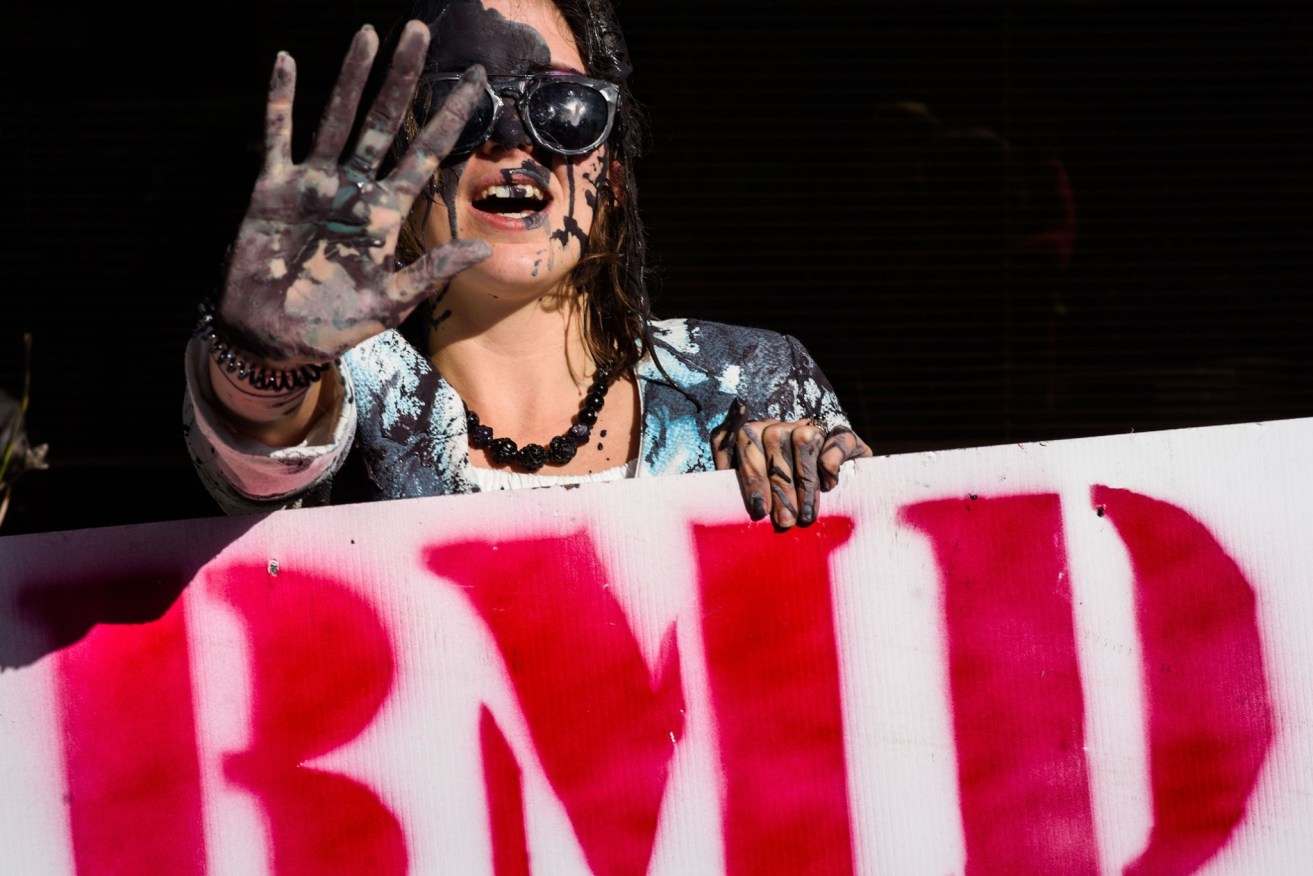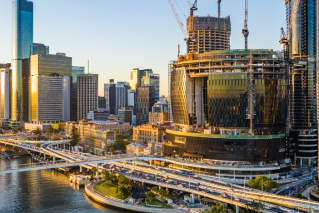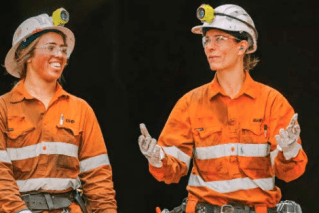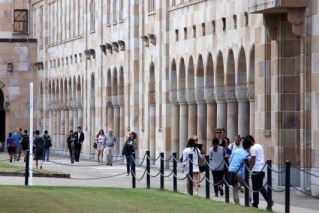After 10 years and $4 billion, will Adani dispute ever find a clear winner?
Adani’s Carmichael project is now 10 years old, still incomplete as costs exceed $4 billion and now it faces a new wave of activism.


Activists protesting against BMD's role with Adani
The development of the mine is now just over a year old and more than 500 workers are on site. Spending is about $70 million a month and likely to top $5 billion.
Adani has so far carved off 30,000 ha of its lease for a conservation area, as required in its conditions. An airport has been built and camps have been created. About $1 billion in contracts have been awarded to business for the construction work and before it put a shovel in the ground it had already spent $3.3 billion.
It appears inevitable that it will produce its first coal next year, despite the opposition to it.
But it has also reshaped politics, mine development and even environmental activism in Australia.
And now that it seems likely to become a producing mine there are now differing opinions among the activists about what a victory against Adani would look like. Some believe stopping other Galilee Basin proponents from developing coal projects would be a significant victory even if Adani does produce coal.
There is also a belief that if Adani walked away from Carmichael and instead bought an existing mine that would be a substantial victory because it would leave the Galilee Basin unopened. But that seems unlikely after already spending more than $4 billion on Carmichael.
Others think they can still force the project to be abandoned, even if it does produce coal. They think that its rail line will never be the profitable asset once thought because it seems unlikely that any other projects will use it.
But the current political issues between India and China, the pandemic and poor economic outlook make the outcome less predictable.
Coal prices, a shrinking market for the commodity and the huge cost of the mine will make Carmichael a difficult project to generate profit.
But stopping the Carmichael mine isn’t the only goal. There are also half a dozen massive coal projects at various stages of pre-development that will be boosted by Adani’s start, but still hampered by a shrinking market for thermal coal.
The activism has contributed to banks and insurers walking away and rewriting their rules of investment on fossil fuels, but Adani maintains it has adequate insurance in place.
Few projects could have shaped politics like Adani’s has. A federal election swung back to Coalition on the issue and the Palaszczuk Government was returned after it backflipped on its support for the mine at the last state election.
It was even an issue in a Victorian by-election for the federal seat of Batman.
Without doubt, Adani’s Carmichael project has changed the way Australians look at one of its biggest commodity exports.
Even Adani has changed in the 10 years since it bought the project from Peter Bond. It is now on the path to becoming one of the world’s biggest renewable energy producers while also being developing a thermal coal mine.
COVID-19 has added a new dimension by slashing energy use globally and consequently coal prices have plummeted.
Activists also point to fundamental changes in India where the Government continues to try to put an end to importing coal, a goal that it has failed to achieve despite years of promises.
The activists are also aiming at Adani’s business partners. BMD and Wagners have been hit with months of protests while insurance broker Marsh continues to be harassed after it recently rejecting activist demands to walk away from Adani.
That is likely to increase now that COVID-19 restrictions are easing. Frontline Action Against Coal is restarting it protest activities. It is already calling for people to head to its bush camp near the project.
The activism is also targetting the Adani Abbot Point coal port and trying to force financiers to walk away from its attempts to refinance its debt.
Meanwhile, Glencore has moved ahead on a huge thermal and coking coal mine, near Emerald and Pembroke’s Olive Downs coal project is now waiting for a mining lease before pushing the go button – all with barely a protestor in sight.
Another legal battle also looms for the project with the Australian Conservation Foundation taking the Morrison Government to court in October for what it claims was the failure to apply the “water trigger” when it referred for assessment Adani’s North Galilee Water Scheme project.
ACF’s Queensland campaigner Jason Lyddieth said Adani wants to take up to 12.5 billion litres of water a year – the equivalent of 5000 full Olympic-sized swimming pools – from the Suttor River in central Queensland to wash coal and suppress dust at its Carmichael mine.
“In our upcoming court case, which is scheduled to begin on 6 October 2020, ACF will argue the government made an error of law by deciding the water trigger applies only to infrastructure that is directly involved with extracting coal.
“We will argue the pipeline is essential infrastructure to service the Carmichael coal mine. It would not be built at all if it weren’t for Adani’s mine, so the water trigger should be applied to the project.”
Adani said the case was another lawfare tactic by ACF in its campaign against the Australian resources industry and these latest antics by the ACF make a mockery of the group’s status as a registered charity.
“This will be the 12th occasion that groups like these who have charity status, or are closely-affiliated with groups who do, have used the courts in an attempt to delay our project. All of these legal challenges brought about by activists have been unsuccessful,” a spokesman said.












